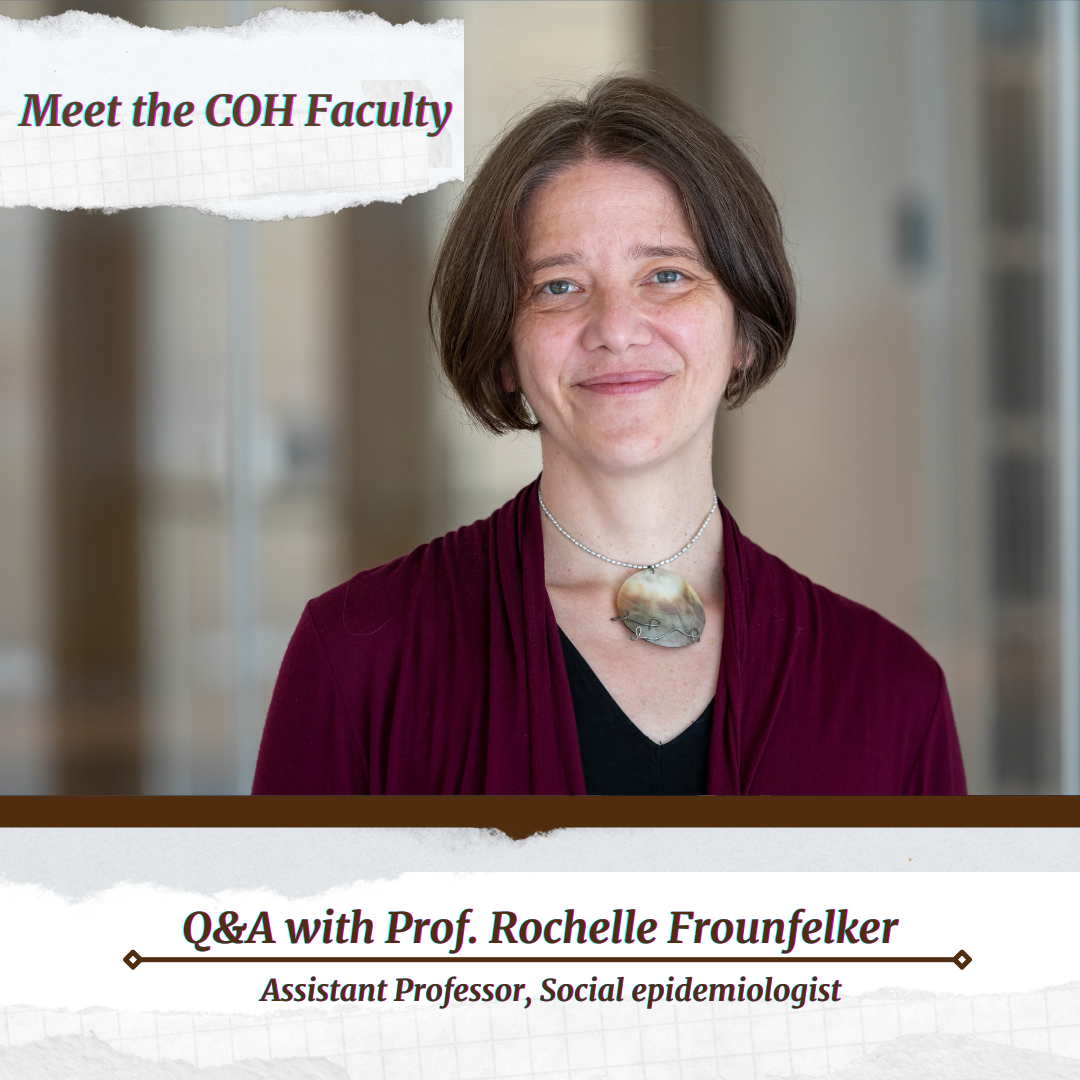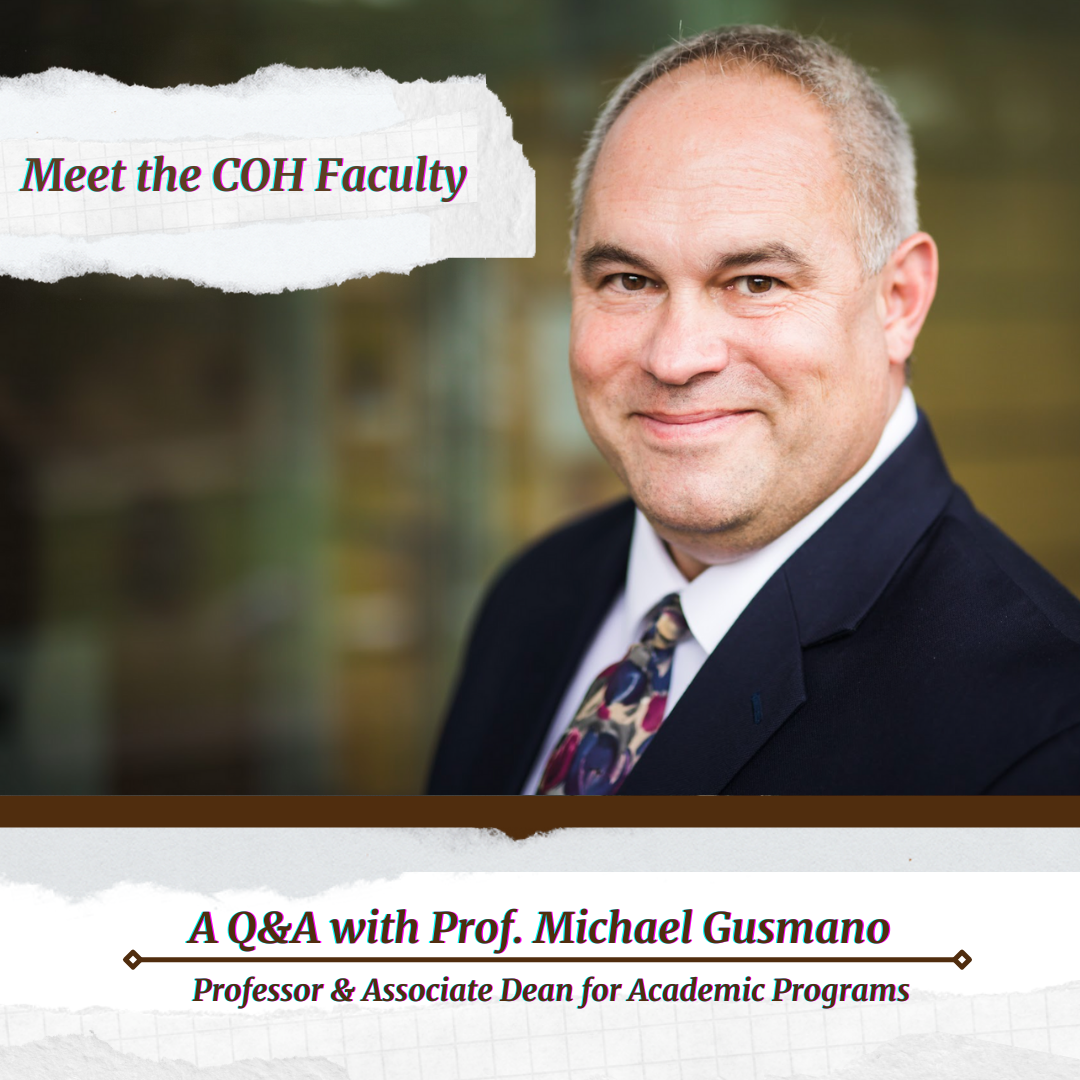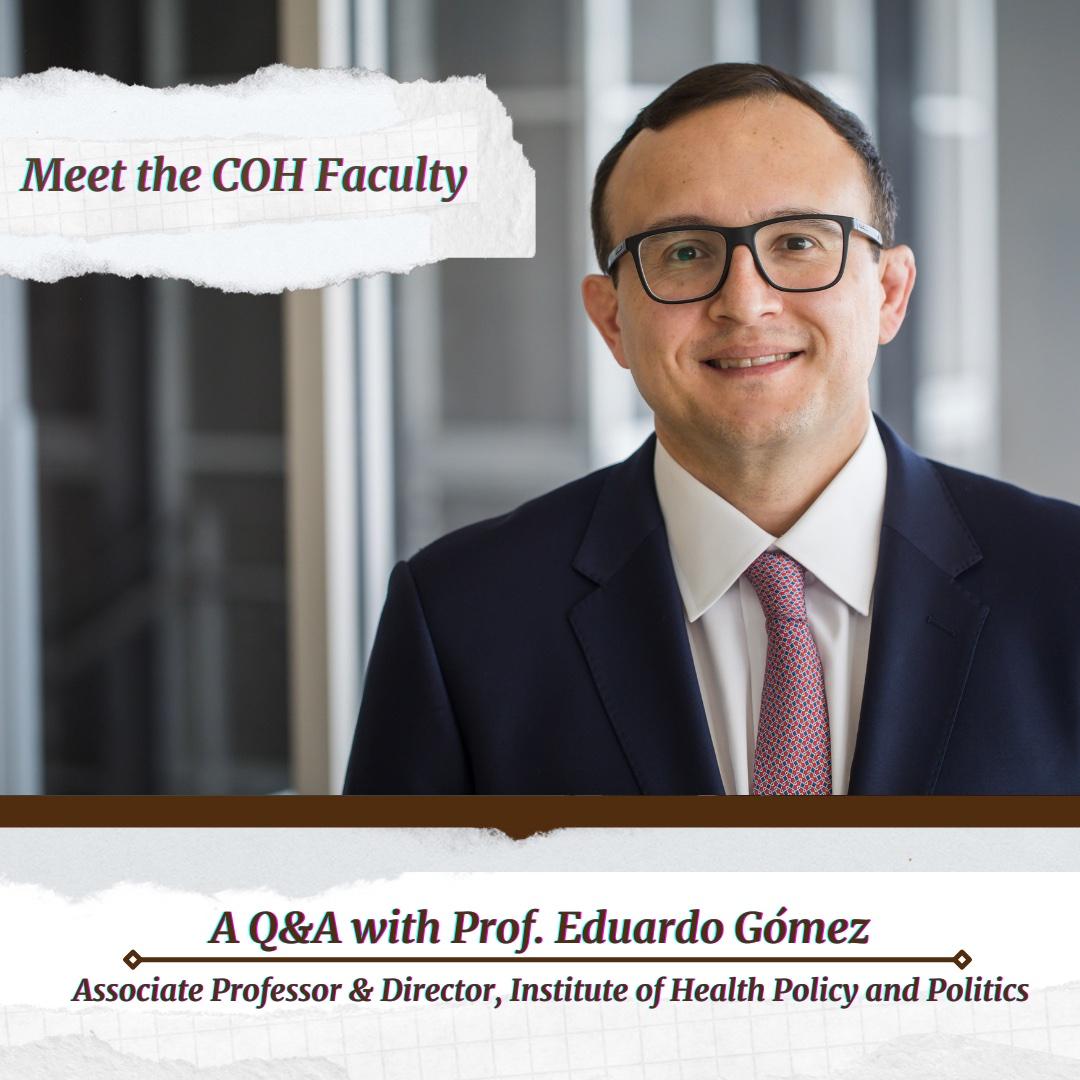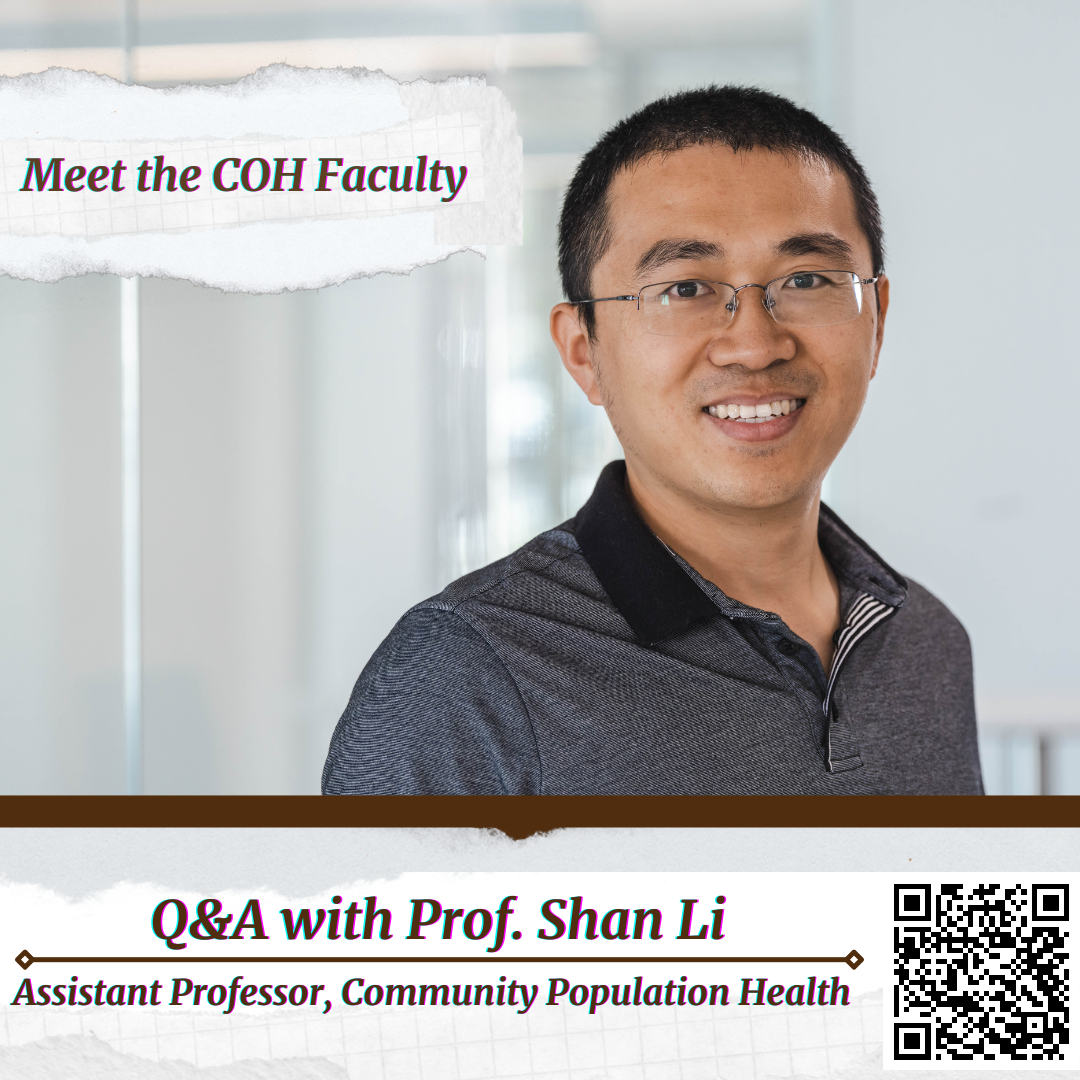
Faculty profile: Meet Rochelle Frounfelker
By Esha Soni
Assistant Professor Rochelle Frounfelker is a social epidemiologist who: uses mixed methods to investigate the life course impact of social and environmental adversities on psychiatric disorders among marginalized populations; implements new or adapted evidence-based interventions to reduce negative mental health outcomes; and assesses the effectiveness of interventions in clinical and community settings. Her work is interdisciplinary and incorporates knowledge from epidemiology, cultural psychiatry, social work, child development, and aging.
Q: Where did you study and earn your degrees?
Frounfelker: I'm originally from Wisconsin. My undergraduate degree is in history from the University of Wisconsin Eau Claire. I then went to Columbia University in New York and pursued a dual degree program where I achieved my master's in social work and my master's in public health. Next, I continued with my doctorate at Harvard School of Public Health in the Department of Social and Behavioral Sciences. After that, I spent several years getting my postdoc at McGill University in Montreal.
Q: How was the experience of receiving an education in two different countries? Did you notice a difference?
Frounfelker: Well, it was an interesting time to be in Canada. One of the reasons I was interested in going to Canada for a postdoc was the [political circumstances]. With the work I was doing around refugee populations, really genuinely looking at this in the United States was not going to be a very popular issue in the short term. I was also interested in being in a country like Canada because it has very different policies around refugees and immigrants than the U.S. in a variety of dimensions. Doing work with people in Canada around refugees and asylum seekers and being able to branch out and think about these policy issues and implications around mental health, is my area of focus.
Q: What is your specific area of interest?
Frounfelker: I define myself as a social epidemiologist, broadly looking at social-environmental determinants of public health, with a focus on mental health. For the past decade, I have been focusing on the mental health of war-affected populations and refugees, more specifically, thinking about the migration experiences of other populations. Also, I think about mental health throughout the lifespan, working with children and youth up through older age adults and understanding the impact of life experiences on their mental health and trajectories over time. The second area of work I do, started when I was in Canada, was looking at the issue of violent radicalization and violent extremism as a public health issue. More specifically, the mental health and psychosocial issues associated with that and the dynamics around that topic.
Q: How were you introduced to these interests?
Frounfelker: It was a pivot. I wasn't sure what I wanted to do after I graduated from college [with my BA] so I took a couple of years off and ended up volunteering and getting jobs in different things. I was passionate about a lot of issues around women's health and around violence against women and that is when I started looking at social work as a profession. Then, I was part of Columbia’s dual degree program and got my masters in public health, but it was focused on history, policy and ethics. I probably spend more time than maybe other people do thinking about the past, and how those things are relevant for what's going on in the present, and understanding the backdrop of entire community health and individual health.
Q: How do your interests relate to your position in the College of Health?
Frounfelker: I focused on something that was a fit for me, and I was particularly interested in this position at Lehigh because a lot of work I've done in the past was with the Bhutanese refugee population. There's a huge, secondary migration of Bhutanese refugees in the Harrisburg area and a lot of the people that I've worked with in the past in Massachusetts said that they moved to Harrisburg. I thought there were a lot of really great opportunities to build on, and collaborations to continue, within the framework that I saw valued at the College of Health.
Q: What brought you to Lehigh?
Frounfelker: I was excited at the opportunity to be close to people who are now my friends in the community and to work with that [Bhutanese] community. And I thought about the interesting and exciting opportunities to be part of the College of Health - to help shape something and be a part of building something, which was appealing to me.
Q: Tell us about your current research or research that you’ve done in the past.
Frounfelker: Right now, in terms of building a collaboration with Bhutanese communities, we're still finishing up some work that I did as a post doc - looking at aging and mental health. I spent time this summer, and so far this fall, meeting with community members and talking about what issues were most important to them. I plan on building on that work and looking at identifying and adapting an intervention that could be used with older adults for their mental health and well-being. We’re also looking at the issue of substance use and abuse among youth and young adults in the community and embarking on a small pilot project to understand more broadly what's going on there. I'm still involved with former colleagues on research and projects in Canada, analyzing cross-sectional, longitudinal data looking at predictors and support of violent radicalization. It [the research] is part of a grant to evaluate a program of clinical services for individuals that are identified as violent extremists in Quebec that are in clinical care.
Q: Are there challenges you face with this research?
Frounfelker: The very nature of doing community-based participatory research means it takes longer than doing other kinds of research and encountering what it means to have an equitable partnership and input from all parties. You're not going to agree on everything, so that process of making some missteps in terms of dynamics and relationships in the community. Building and maintaining relationships and partnerships is an ongoing process and it's not something that 's like, ‘oh, we've done it, and now you're, we're good to go’. On a different note, in terms of wanting to look at violent radicalization and extremism as a public health issue is a hard sell. Wanting to look at it as a public health issue and trying to get some movement around that and interest, whether it be from funders, other researchers in public health, it's really a challenge to do. And I think that's sort of one of my questions and coming back to the US to say, I know, there's sort of a critical mass and critical movement of thinking about it in Canada and funding around that issue. And I'm not really sure what the landscape looks like in the US.
Q: What classes are you teaching this semester?
Frounfelker: I'm teaching qualitative methods for health research.
Q: How has the greater Lehigh Valley surprised you?
Frounfelker: I'm going to be honest, I'm still trying to figure it out. Moving from Canada back to the U.S. was its own thing. I lived in New York City, but I've never lived in this part of the country.
Q: What have you learned about the students at the COH?
Frounfelker: I love the excitement and the enthusiasm that a lot of students have, wanting to do something that has an impact and that makes a difference. I think that's really exciting and smart thinking through how to be supportive of their passions and help them turn it into something like a project. But yeah, it has been interesting hearing about diverse interests.
Q: Any hobbies?
Frounfelker: I like to go hiking. I like doing pottery like ceramic arts and also fiber arts like spinning, knitting and weaving. And, even though I haven’t done it in a while, learning French.
Q: Cats vs dogs?
Frounfelker: Well, I've had both. But moving forward, if I bought an animal it would probably be a dog.


